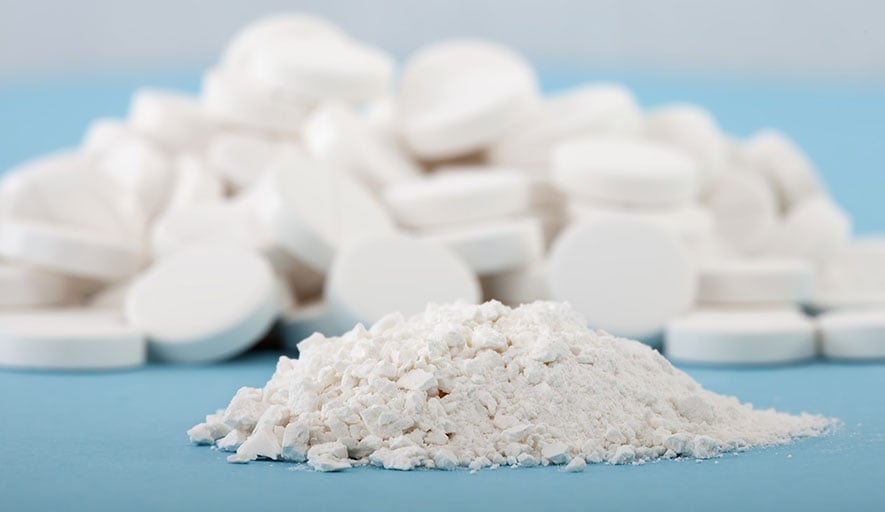Today’s Pharmaceutical Manufacturing landscape is seeing a change with companies moving away from having large-scale plants producing a small number of products. The increasing number of Generic alternatives to Patented products means facilities are producing a significantly higher number of products which in turn requires an ever-increasing level of flexibility.
With this market shift there is a growing need for manufacturers to update and adapt production and business processes. There’s never been a better time to future proof pharmaceutical manufacturing. But where do you start? In this blog we’ll explore the technologies and strategies you need to consider when future proofing your business in this market.
We spoke with Richard Lockwood, a Business Line Director at Matcon, specialising in Pharmaceutical systems. Richard has a wealth of information, tips and insights to help forward thinking Pharmaceutical manufacturers here are just a few of the insights he shared with us.
New Drugs Evolving on the Pharmaceutical Market
It is not only the range of drugs on the market that is growing, but also the way these drugs are delivered -multi-layer products, micro tablets and other multi-particulate formulations. These new systems improve patient practicality, but from a manufacturing perspective, facilities will need to initiate more flexible equipment solutions to cater for these higher complexities in the production processes, if they are to remain competitive.
Output Volume is not the only Concern
One of the principle challenges in pharma manufacturing has been that output and efficiency can reduce as a cost of maintaining quality, safety and regulatory compliance. At Matcon we believe that efficient, quality processes should be achieved without detrimental effects on other requirements.
As manufacturers now need to compete in a price sensitive arena volume and efficiency is key to profit, downtime is now a big problem. Unfortunately, there have been many regulatory actions taken against pharmaceutical OSD facilities in recent years. The foremost cause is that the facilities were old, with aging pharmaceutical equipment. New technologies, embracing sealed, containment solutions, are encouraged by pharmaceutical inspectors in order to mitigate contamination risks. Those that are quickest to adopt these technologies are outperforming their competitors and navigating regulatory landscape with ease.
What You Can Do to Stay Ahead of the Curve
Pharmaceutical businesses need to get ready now by implementing new cost-effective, flexible, modular manufacturing systems such as the introduction of IBCs (Intermediate Bulk Containers) enabling multiple products and larger batches to be manufactured.
Here’s a selection of just some of the benefits a shift to IBC manufacturing can yield:
- Gentle handling of tablets & capsules either coated or not (of batches up to 650kg)
- Less production space needed
- Less manual handling, quicker loading and unloading of granules & tablets
- Time-saving, less downtime
- Numerous size variants
- Hygienic Design – sealed, contained and dust-tight
- Ability to automate
- Validation of automated cleaning process
How to Ensure You Remain in Control of Your Ingredient Discharge
Unique Matcon IBC technologies ensure that all of your products contain the correct measures of ingredients required. The patented Cone Valve, within each IBC, can control even the most free-flowing powders right through to sticky materials. The valve opens, closes or shuts off the flow, regulating the amount of powder discharged. If a problem occurs downstream, production doesn’t need to stop, or batches changed.
To meet the pressures of consumer and supplier demand, of specific and smaller order quantities and the specialist new formulations forecast, you must become agile if you’re going to compete. Assess your current facility processes by asking yourself:
- are you using updated technologies and flexible equipment for pharmaceutical manufacturing?
- are these methods cost and time effective?
- are you able to cope with fluctuating future industry changes and demands?
Now is the perfect time to re-evaluate your pharmaceutical manufacturing operations and start preparing for your future. It’s better to start small incremental changes now than a wholesale change when it’s too late. There is a great opportunity for manufacturers prepared to innovate and change their production processes.
If you have a specific pharmaceutical challenge that you need help or advice with, don’t hesitate to contact our team of experts and we’ll be able to provide further advice and guidance.
Topics:
Pharmaceutical

